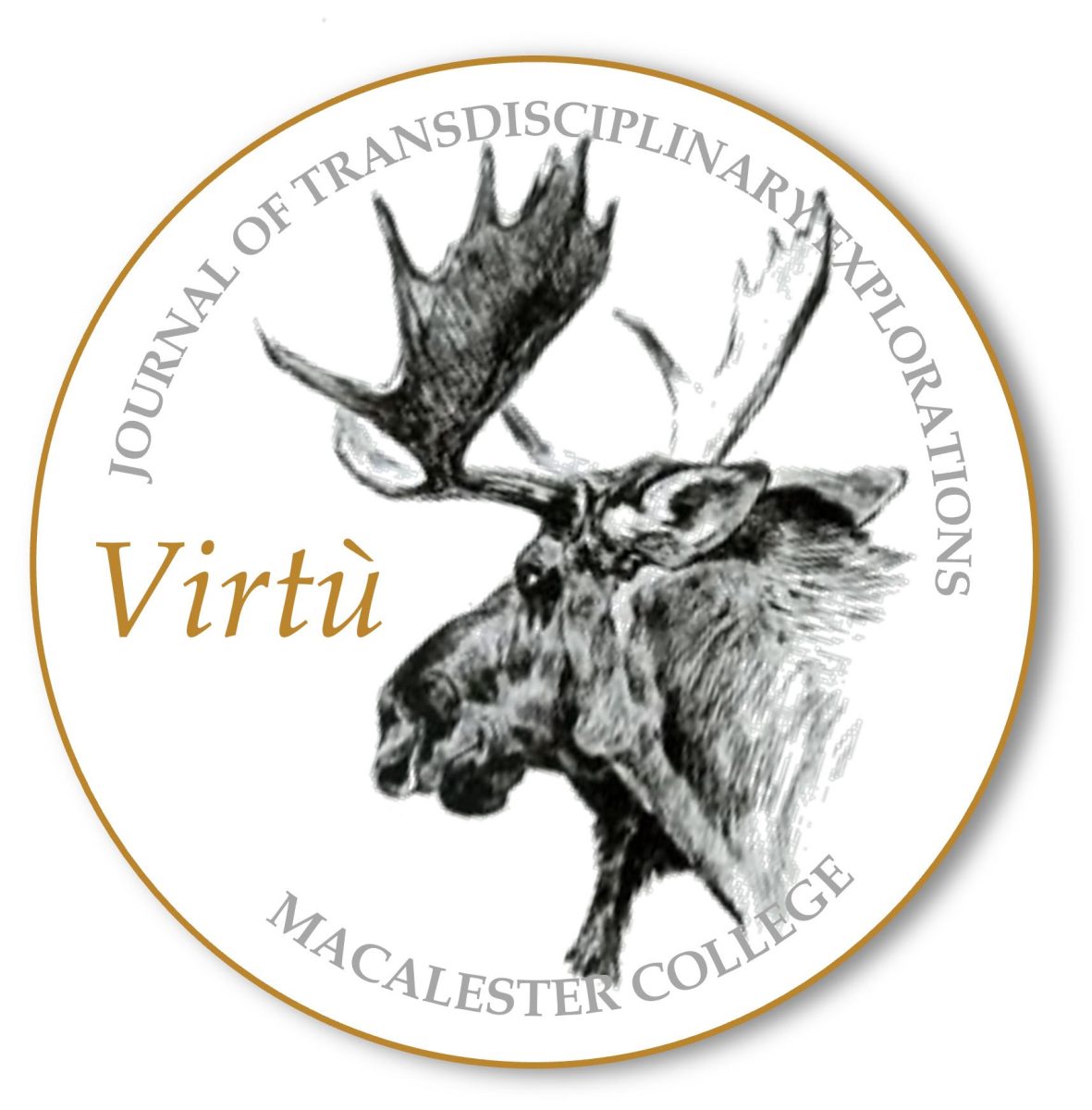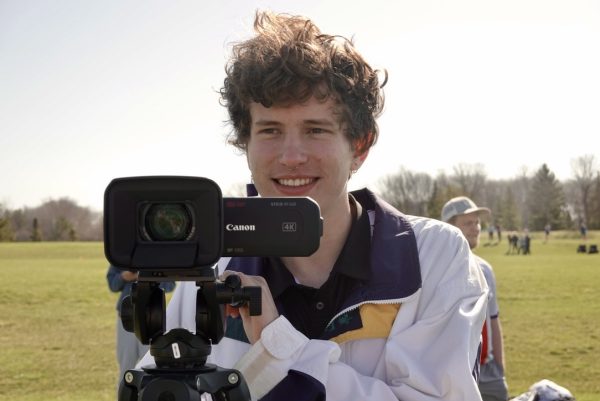Walter Moore ’27 has always been busy.
But after Moore lost the Macalester College Student Government (MCSG) election for first-year class representative, he realized he needed another way to spend his time. He quickly turned his sights to Macalester’s more academic side, finding problems with the way academia is seen at Macalester. He wants to return to a time when popular theorists and famous names headlined Macalester events.
“We felt like there was a gap at Macalester,” Moore said. “We used to have things like the International Roundtable fill the Chapel with students … that’s what sold me on this place. But that doesn’t exist anymore.”
Moore and his friend Khant Wai Yan ’25 started brainstorming how they could change the academic culture at Mac. They quickly noticed that student-run publications were more focused on specific fields of study instead of
transdisciplinary topics, which are Moore and Yan’s interests. They decided if they wanted change, they would have to spear-head it.
“I’ve always had this Kool-Aid Man attitude,” Moore said. “If I run hard enough against the wall, it’ll cave, right?”
They started the group by looking for core people to be involved. With a lot of work ahead of them, the journal, named Virtù, would need a dedicated team, more than just Yan and Moore, to get it off its feet. And find people they did. It turns out, there are a lot of Mac students interested in academia outside the classroom.
“It’s something that I think could provide a lot to the academic and social life here on campus,” Virtù Secretary Cole Conklin ’27 explained. “Also, it’s a great opportunity to work on my writing and organizational skills.”
“I wanted to improve my writing and help other people improve their writing by discussing humanities-based topics that I already think are really cool,” Colette Lawler ’27, Virtù research and content associate, said.
But starting a new academic publisher is a daunting task for students who aren’t connected to the academic world. Because of this, Moore has been looking to James Wallace Professor and Chair of international studies Ahmed Samatar for guidance for publishing.
“He’s our official advisor through MCSG and is taking a bit more of a hands-on approach until we have a product,” said Moore. “He emphasizes having quality essays instead of just quantity, and has a very significant role in how Virtù is shaped as an institution.”
One of the defining philosophies of Virtù is its approach to publications.
“Other journals’ … editing philosophy is from a top-down perspective,” Moore said. “Not with Virtù. You come to us with an idea … and we work with you to put it into the best medium possible.”
The main way Virtù does this is by designating two editors to work with students, providing help through brainstorming, workshopping and editing. Another hurdle was finding a way to get a broad spectrum of ideas, identities and departments involved in Virtù.
This diversity of ideas is fundamental to the way Virtù thinks about academia.
Moore referenced the book “The Modern World System” by Immanuel Wallerstein, which claimed that previously, higher education was more interdisciplinary.
“But at some point, all these things became separate,” Moore said. “Science can’t mix with history anymore … there are two different disciplines.”
“The idea of Virtù is to bring it back to that original philosophy, where it’s one unified truth, but many different mediums of explanation,” Moore said. “They don’t have to be separate…if you put them together then they’re even more substantial.”
Virtù also looks for a diversity of thought in the way they choose writers for their upcoming publications. Although anyone can write, each publication has writers publishing on different parts of the world: North America, Latin America, Europe, Africa/Middle East, Asia, China and the U.S. Their first edition will be titled “Pervasive Uncertainty in Emergent Chaos.”
But there were also a few practical questions that needed to be asked. Virtù still needed to be chartered by MCSG and for a publication lacking an endowment like other publishing groups on campus, funding was central to Virtù’s ability to move forward.
Luckily, on March 28, the Legislative Body (LB) of MCSG unanimously voted for Virtù to be chartered as an organization at Macalester. Although the money question will be on the minds of Walter and Khant for the foreseeable future, they’re optimistic about how that will play out.
With several different ways of allocating resources for the club, like MCSG funding, money from the Board of Trustees and more, the work will be hard but realistic for the monetary aspect of Virtù.
“I know that we’re going to be able to get funding from the school,” Moore said.
From Virtú’s meeting attendance, clearly Moore isn’t the only one excited for what’s next. Virtú’s meeting on Sunday, March 24 was filled with like-minded students motivated to make Virtú’s idealistic dream a reality. Yan stood at the front of a whiteboard, writing in chicken scratch who’s writing for each region, the math on how much money they’ll need for a first issue and scheduled dates reaching far into future semesters for writers and editors.
“No matter what, we’re very, very passionate about getting all the infrastructure down so we can have a good product come September,” Moore said.
So what’s next for Virtú? Right now, they are planning on releasing their first issue next semester, with writers and editors already being selected. They’re also working on a website, virtujournal.org. The future for Virtú looks bright, and if it is anything like Moore, it’ll be running through walls for years to come.







